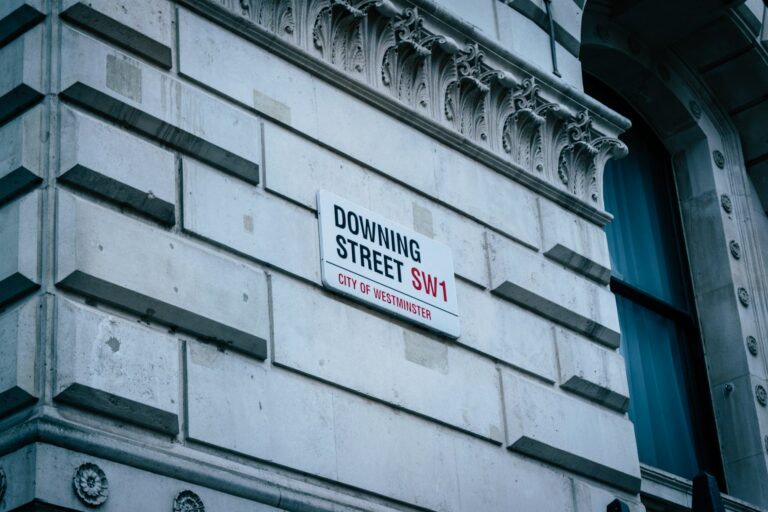
As the Coronavirus crisis in the UK continues, organisations of all kinds and all sizes are fighting for survival. Business leaders are worried, tired and, often, unsure of how best to proceed from here.
The initial ‘response’ phase is complete, where urgent decisions and changes were made to protect employees and follow government guidelines. Many businesses adopted flexible working overnight, or refocused processes to perform only the most essential tasks. Many others chose to partially close, furloughing employees until business can resume.
The big question now, though, is where do we go from here? Now that the short-term priorities are addressed, how should leaders plan for the coming months? There is still no clarity over how long Covid-19 will remain a threat and the full economic impact of the pandemic.
While every organisation has its own individual challenges and opportunities, there are three core areas of focus that can help crystallise our thinking in planning for the months to come. Every business needs to think in terms of their employees, their customers and their financial position.
It’s become a bit of a cliché to say that a business is nothing without its people – but that doesn’t make it any less true. There’s never been a more important time to keep communicating with your employees, to keep them informed about what’s happening and how you are looking after them.
Your people will be looking to you for guidance, reassurance and a commitment to keeping them safe. Remember, too, that different businesses are approaching the crisis in vastly different ways, and the perception of why you are asking people to come to work – or other difficult decisions you have had to make – could have an adverse effect on your reputation as an employer.
Regular updates, being clear about your decision making, listening to feedback and making gestures of goodwill could spell the difference between success and failure as we move forward through the crisis.
There have been clear leaders in customer care since the crisis began. One comment we heard was: “I’ve had more communication from the chief executive of Sainsbury’s as a customer, than I’ve had from my own employer.”
Businesses that have a clear message to their customers, stating their approach through the crisis and making a clear commitment to looking after them, are likely to retain people’s loyalty in the long term.
Even if you don’t have everything fully worked out right now, you should reach out to your customers regularly. Explain the latest situation, what you’re doing to support your clients and when you’ll contact them next. Uncertainty can be a business killer.
Clearly any business needs to have complete sight of their financial risk at times like these. Now is the time to conserve cash and seek good financial advice about how best to weather the coming months. Make sure you can pay your employees’ salaries, to cement their ongoing commitment, and collect any payments you can to shore up your position.
Taking advantage of government assistance available will help your organisation, but careful management of your cash flow is top priority right now.
We’ve been advising businesses around the clock to help them navigate the people challenges of the crisis. For expert HR solutions and advice, get in touch with us today.








| Cookie | Duration | Description |
|---|---|---|
| cookielawinfo-checkbox-advertisement | 1 year | Set by the GDPR Cookie Consent plugin, this cookie is used to record the user consent for the cookies in the "Advertisement" category . |
| cookielawinfo-checkbox-analytics | 11 months | This cookie is set by GDPR Cookie Consent plugin. The cookie is used to store the user consent for the cookies in the category "Analytics". |
| cookielawinfo-checkbox-functional | 11 months | The cookie is set by GDPR cookie consent to record the user consent for the cookies in the category "Functional". |
| cookielawinfo-checkbox-necessary | 11 months | This cookie is set by GDPR Cookie Consent plugin. The cookies is used to store the user consent for the cookies in the category "Necessary". |
| cookielawinfo-checkbox-others | 11 months | This cookie is set by GDPR Cookie Consent plugin. The cookie is used to store the user consent for the cookies in the category "Other. |
| cookielawinfo-checkbox-performance | 11 months | This cookie is set by GDPR Cookie Consent plugin. The cookie is used to store the user consent for the cookies in the category "Performance". |
| elementor | never | This cookie is used by the website's WordPress theme. It allows the website owner to implement or change the website's content in real-time. |
| viewed_cookie_policy | 11 months | The cookie is set by the GDPR Cookie Consent plugin and is used to store whether or not user has consented to the use of cookies. It does not store any personal data. |
| Cookie | Duration | Description |
|---|---|---|
| bcookie | 2 years | LinkedIn sets this cookie from LinkedIn share buttons and ad tags to recognize browser ID. |
| lang | session | This cookie is used to store the language preferences of a user to serve up content in that stored language the next time user visit the website. |
| lidc | 1 day | LinkedIn sets the lidc cookie to facilitate data center selection. |
| Cookie | Duration | Description |
|---|---|---|
| _ce.cch | session | CrazyEgg |
| _ce.gtld | session | CrazyEgg |
| _ce.s | 1 year | CrazyEgg |
| _ga | 2 years | The _ga cookie, installed by Google Analytics, calculates visitor, session and campaign data and also keeps track of site usage for the site's analytics report. The cookie stores information anonymously and assigns a randomly generated number to recognize unique visitors. |
| _gat_UA-174055290-1 | 1 minute | A variation of the _gat cookie set by Google Analytics and Google Tag Manager to allow website owners to track visitor behaviour and measure site performance. The pattern element in the name contains the unique identity number of the account or website it relates to. |
| _gid | 1 day | Installed by Google Analytics, _gid cookie stores information on how visitors use a website, while also creating an analytics report of the website's performance. Some of the data that are collected include the number of visitors, their source, and the pages they visit anonymously. |
| _hjAbsoluteSessionInProgress | 30 minutes | Hotjar sets this cookie to detect the first pageview session of a user. This is a True/False flag set by the cookie. |
| _hjFirstSeen | 30 minutes | Hotjar sets this cookie to identify a new user’s first session. It stores a true/false value, indicating whether it was the first time Hotjar saw this user. |
| _hjid | 1 year | This is a Hotjar cookie that is set when the customer first lands on a page using the Hotjar script. |
| _hjIncludedInPageviewSample | 2 minutes | Hotjar sets this cookie to know whether a user is included in the data sampling defined by the site's pageview limit. |
| li_gc | 2 years | Used to store consent of guests regarding the use of cookies for non-essential purposes. |
| li_sugr | 3 months | LinkedIn Insight Tag, when IP address is not in a Designated Country. |
| vuid | 2 years | Vimeo installs this cookie to collect tracking information by setting a unique ID to embed videos to the website. |
| Cookie | Duration | Description |
|---|---|---|
| bscookie | 2 years | This cookie is a browser ID cookie set by Linked share Buttons and ad tags. |
| Cookie | Duration | Description |
|---|---|---|
| AnalyticsSyncHistory | 1 month | No description |
| UserMatchHistory | 1 month | Linkedin - Used to track visitors on multiple websites, in order to present relevant advertisement based on the visitor's preferences. |
| wmc | 10 years | No description available. |